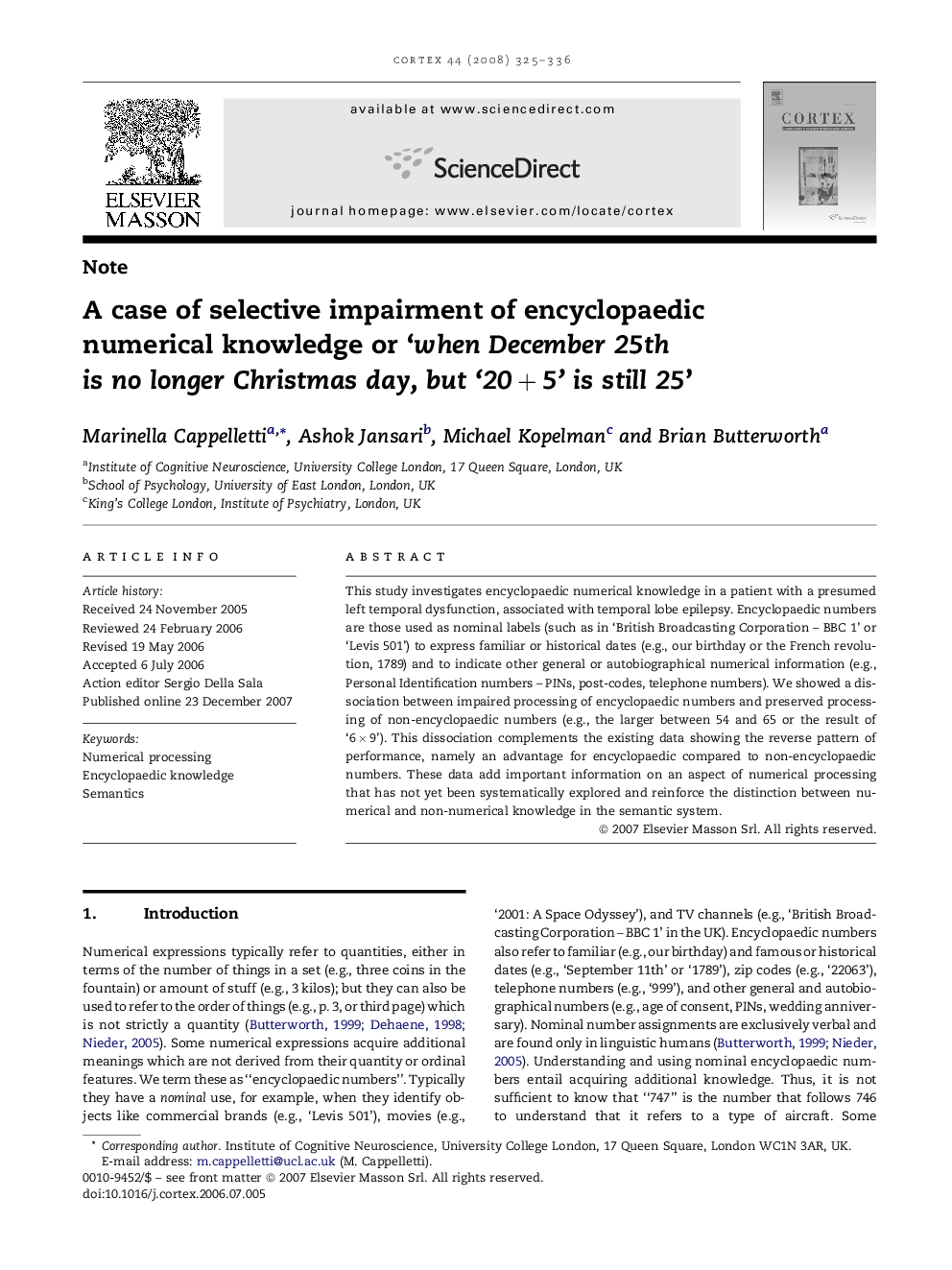| Article ID | Journal | Published Year | Pages | File Type |
|---|---|---|---|---|
| 942874 | Cortex | 2008 | 12 Pages |
This study investigates encyclopaedic numerical knowledge in a patient with a presumed left temporal dysfunction, associated with temporal lobe epilepsy. Encyclopaedic numbers are those used as nominal labels (such as in ‘British Broadcasting Corporation – BBC 1’ or ‘Levis 501’) to express familiar or historical dates (e.g., our birthday or the French revolution, 1789) and to indicate other general or autobiographical numerical information (e.g., Personal Identification numbers – PINs, post-codes, telephone numbers). We showed a dissociation between impaired processing of encyclopaedic numbers and preserved processing of non-encyclopaedic numbers (e.g., the larger between 54 and 65 or the result of ‘6 × 9’). This dissociation complements the existing data showing the reverse pattern of performance, namely an advantage for encyclopaedic compared to non-encyclopaedic numbers. These data add important information on an aspect of numerical processing that has not yet been systematically explored and reinforce the distinction between numerical and non-numerical knowledge in the semantic system.
